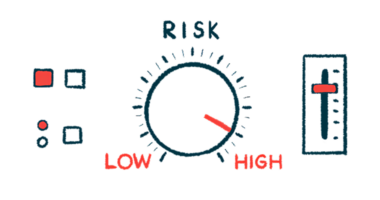Adverse Childhood Experiences Don’t Influence MS Risk: Study

Adverse childhood experiences (ACEs) did not increase the risk of multiple sclerosis (MS) development and were not associated with worse clinical outcomes, a recent study reported.
These findings add to the complexity of the potential relationship between ACEs and MS that has emerged across several research studies.
“Our primary findings, which do not support the role of ACEs in risk of MS, both agree with and contradict past studies of MS and autoimmune disorders,” wrote the research team from the University of California, Berkeley, and the Kaiser Permanente Division of Research in California.
The study, “Case-control study of adverse childhood experiences and multiple sclerosis risk and clinical outcomes,” was published in PLOS One.
MS is an autoimmune disease characterized by an inflammatory response that wrongly targets the body’s myelin sheath, which is the protective substance surrounding nerve cells.
Although the causes of MS are not yet clear, previous studies have suggested that stress caused by exposure to ACEs — including abuse or neglect — leads to immune dysregulation that may contribute to autoimmune conditions, including MS.
Multiple studies have now evaluated the potential link between ACEs and MS risk or progression, but have reported limited results.
To shed light on this issue, the research team used a computer-assisted telephone interview system (CATI) to collect clinical data and ACE information from 1,422 non-Hispanic adult MS patients from the Kaiser Permanente Northern California (KPNC) MS Research Program and 1,185 healthy volunteers enrolled in the KPNC health plan between 2006 and 2014.
Using CATI, all participants were asked to indicate whether they had experienced any of nine different ACEs in childhood (ages 0-10) or adolescence (ages 11-20). They also answered a number of demographic, environmental, and lifestyle questions.
Among the participants, 79% of MS patients and 81.5% of controls were female. The average disease duration for those with MS was 17.1 years, and most MS cases were considered to be mild.
Initial findings showed that 54.5% of MS patients and 53.8% of control participants had experienced at least one ACE by age 20. Significant physical abuse or neglect was the most commonly reported ACE for both groups, occurring overall in 12.1% of participants during childhood and 14.9% during adolescence.
Occurrence of at least one ACE was not associated with an increased risk of MS development in either age group, the researchers reported.
Even though preliminary analyses suggested that a younger age of MS onset and regular use of a walking aid were more common in MS patients that experienced at least four ACEs, that result did not remain significant in the final statistical analysis.
The researchers emphasized that overall, an increasing number of ACEs was not associated with MS risk or clinical outcomes, in contrast to previous reports from other autoimmune conditions.
“The differing results may be a result of different associations between ACEs and specific autoimmune conditions or insufficient statistical power, measurement error, or selection bias within our study or others,” they suggested.
Of the nine individual ACEs, physical abuse and home loss in childhood, but not adolescence, were associated with a decreased MS risk, which is an unexpected result according to the researchers.
“Our findings pertaining to physical abuse (and home loss) demonstrated a significant protective effect during childhood, but there is no reason to believe that physical abuse or home loss, but not other ACEs, would prevent MS,” the researchers wrote. “In fact, previous research contradicts this finding which identified an increased risk of MS among those who have experienced severe abuse … and null associations between physical abuse or neglect and MS risk.”
Subsequent analyses were performed to account for the fact that some of the ACEs may be related to one another, but still no associations were observed between ACEs and MS risk.
Overall, “findings from the current study did not support an association between ACEs and development of MS or clinical [features] of MS,” the researchers concluded.
They noted, however, that ACEs including household substance abuse, parent incarceration, and sexual abuse were omitted from this study, but could play a role. Moreover, only a few clinical measures were analyzed; others, such as MRI data, relapse rate, and cognitive impairment might reveal relationships that were not captured in this study, the researchers added.
African Americans are disproportionately affected by adverse experiences, and those with MS have, on average, worse clinical outcomes than Caucasians. Therefore, the fact African Americans were underrepresented in this study also poses a limitation, the team noted.
Another limitation is that since participants were asked about events that may have happened a long time ago, experiences could be misremembered or repressed and therefore not reported accurately. Recall accuracy or question interpretation could have also differed between the MS and healthy groups.
Overall, the team concluded, “Despite rich data and multiple approaches to operationalizing ACEs, no consistent and statistically significant effects were observed between ACEs with MS. This highlights the challenges of studying sensitive, retrospective events among adults that occurred decades before data collection.”
“Future studies should consider alternative tools for assessing ACEs and childhood trauma, such as biomarkers of stress, and/or obtain ACE information from MS patients as close to diagnosis as possible to reduce the number of years between exposure and outcome,” they added.







